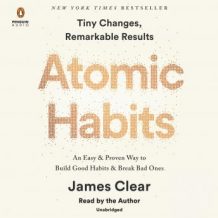$2.00 a Day: Living on Almost Nothing in America Audiobook
$2.00 a Day: Living on Almost Nothing in America Audiobook
- Allyson Johnson
- HighBridge Company
- 2015-09-01
- 7 h 15 min
Summary:
The storyplot of some sort of poverty in the us so deep that we, like a country, don’t even think exists from a leading nationwide poverty expert who defies convention (NY Times). Edin and Shaefer inform the tales of eight family members who live on what is almost unimaginable-an income that falls below the Globe Bank description of poverty in the developing world. Their stories need to be heard, especially once we head into our election calendar year that will highlight the queries on income and inequality, and about $2.00 each day: Living on NEXT TO NOTHING in America our commitment to making prosperity available to all. We’ve made great measures toward getting rid of poverty around the world-extreme poverty has declined significantly and seems on track to continue to take action in the next decades.
Jim Yong Kim from the Globe Bank quotes that intensive poverty could be eliminated in seventeen years. That is clearly cause for special event. However, this very good news can make us oblivious to the fact that we now have, in the United States, a significant and growing quantity of families who go on less than $2.00 per person, each day. That body, the World Bank way of measuring poverty, is hard to imagine in this nation most of us spend a lot more than that before we get to work or school in the morning. In $2.00 EACH DAY: Living on NEXT TO NOTHING in the us, Kathryn Edin and Luke Schaefer introduce us to the people like Jessica Compton, who survives by donating plasma as often as ten times per month and spends hours with her young children in the public collection so she can get usage of an web connection for job-hunting; and like Modonna Harris who dropped the cashiers job she held for years, with regard to $7.00 misplaced at the end of the day. They will be the would-be operating class, with a huge selection of work applications submitted in recent months and thousands of function hours logged in previous years. Two decades after William Julius Wilson’s When Function Disappears, it’s still about the work. But simply because Edin and Shaefer illuminate through incisive evaluation and indelible individual stories, the combination of a authorities safety net built on the ability to work and a low-wage labor market increasingly designed not to deliver a full time income wage has shipped a vicious one-two punch to the would-be operating poor.
Greater than a powerful expose of a troubling development, $2.00 per day delivers new evidence and new suggestions to our central national debate on work, income inequality, and what to do about it.






